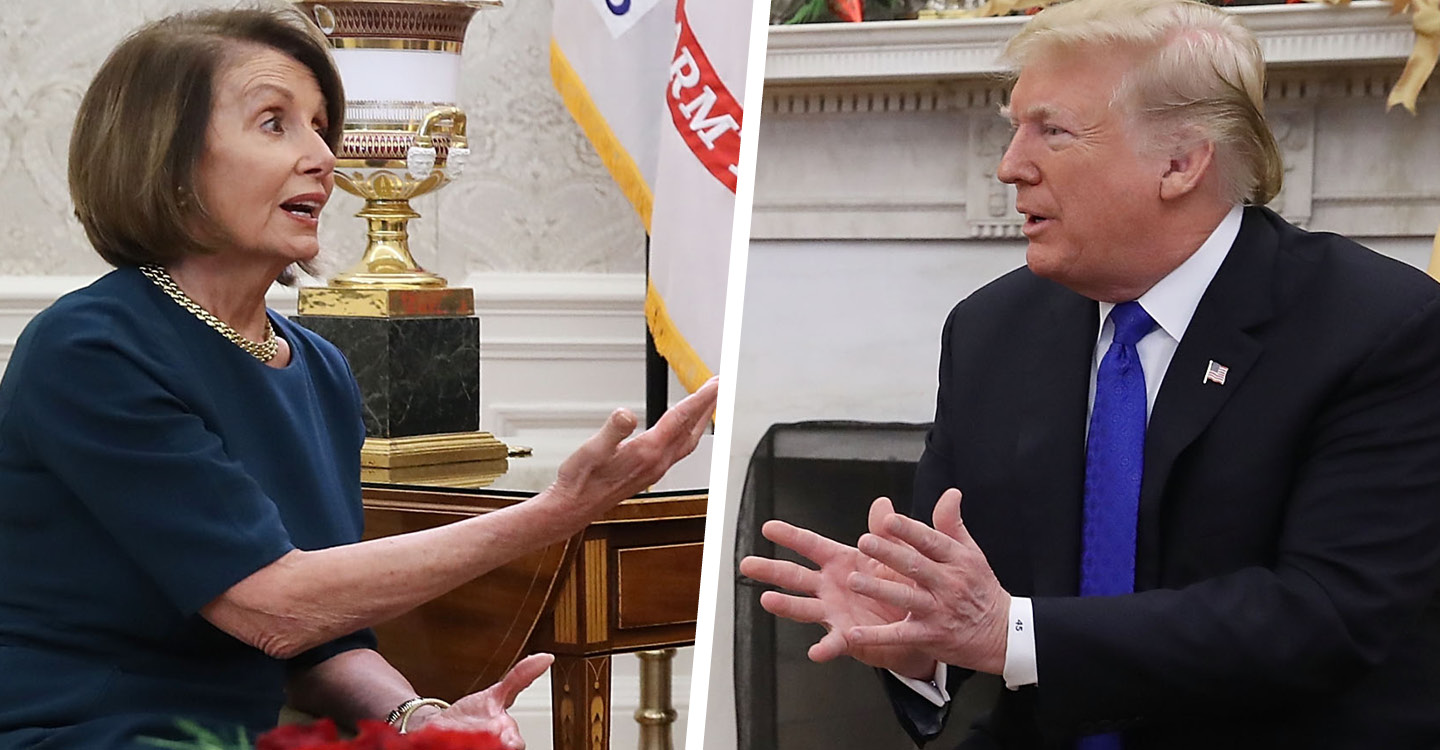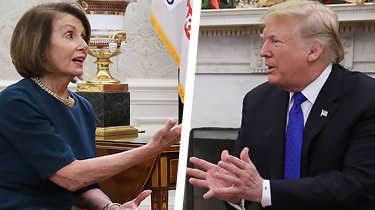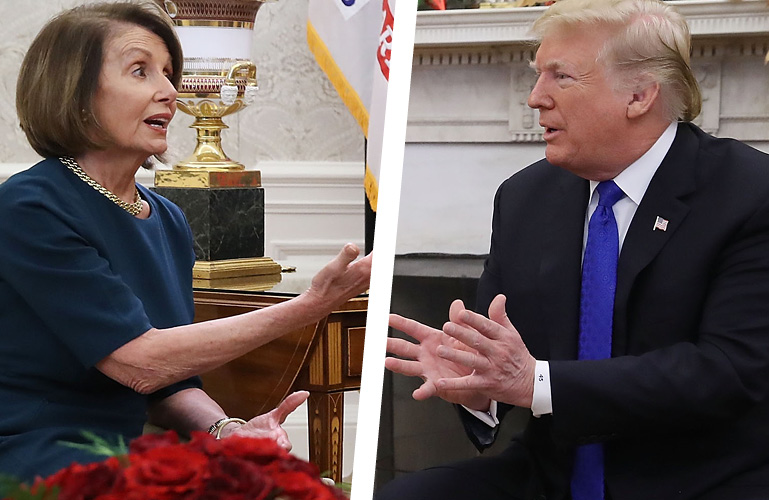Speaker Nancy Pelosi announced on Tuesday that the House is initiating a formal impeachment inquiry against President Trump, charging him with betraying his oath of office and the nation’s security by seeking to enlist a foreign power to tarnish a rival for his own political gain.
Pelosi’s declaration, after months of reluctance by Democrats, was a stunning turn that set the stage for a history-making and exceedingly bitter confrontation between the Democrat-led House of Representatives and a president who has defied institutional norms.
“The actions taken to date by the president have seriously violated the Constitution,” Pelosi said in a brief speech invoking the nation’s founding principles. Trump, she added, “must be held accountable—no one is above the law.”
She said the president’s conduct revealed his “betrayal of his oath of office, betrayal of our national security and betrayal of the integrity of our elections.” Pelosi’s decision to push forward with the most severe action that Congress can take against a sitting president could usher in a remarkable new chapter in American life, touching off a constitutional and political showdown with the potential to further divide an already divided nation, reshape Mr. Trump’s presidency and the country’s politics, and carry heavy risks both for him and for the Democrats who have decided to consider his impeachment.
Though the outcome is uncertain, it also raised the possibility that Trump could become only the fourth president in American history to face impeachment. Presidents Andrew Johnson and Bill Clinton were both impeached but later acquitted by the Senate. President Richard M. Nixon resigned in the face of a looming House impeachment vote.
President Trump, who for months has dared Democrats to impeach him, issued a defiant response on Twitter while in New York for several days of international diplomacy at the United Nations. The president’s posts culminated with a simple phrase: “PRESIDENTIAL HARASSMENT!” Meanwhile, his re-election campaign and House Republican leaders launched a vociferous defense, accusing Democrats of a partisan rush to judgment.
“Such an important day at the United Nations, so much work and so much success, and the Democrats purposely had to ruin and demean it with more breaking news Witch Hunt garbage,” Trump wrote. “So bad for our Country!
For the past two years, talk of impeachment had centered on the findings of the special counsel, Robert S. Mueller III, who investigated Russia’s interference in the 2016 elections and Trump’s actions related to that inquiry. On Tuesday, Pelosi, Democrat of California, told her caucus and then the country that new revelations about Trump’s dealings with Ukraine, and his administration’s stonewalling of Congress about them, had finally left the House no choice but to proceed toward a rarely used remedy.
At issue are allegations that President Trump pressured the president of Ukraine to open a corruption investigation of former Vice President Joe Biden, a leading contender for the 2020 Democratic presidential nomination, and his son. The conversation is said to be part of a whistle-blower complaint that the Trump administration has withheld from Congress. And it occurred just a few days after Trump had ordered his staff to freeze more than $391 million in aid to Ukraine.
Trump has confirmed aspects of his conversation with the Ukrainian leader in recent days, but he continues to insist he acted appropriately.
The House’s authority to investigate and to impeach a president is part of the system of checks and balances built into the Constitution. The decision to begin a formal impeachment inquiry doesn’t necessarily mean that the House will ultimately vote to charge Trump with high crimes and misdemeanors. It’s even less likely that the Republican-controlled Senate will vote to remove him. But Pelosi and her leadership wouldn’t initiate the process unless they were prepared to reach that outcome.



